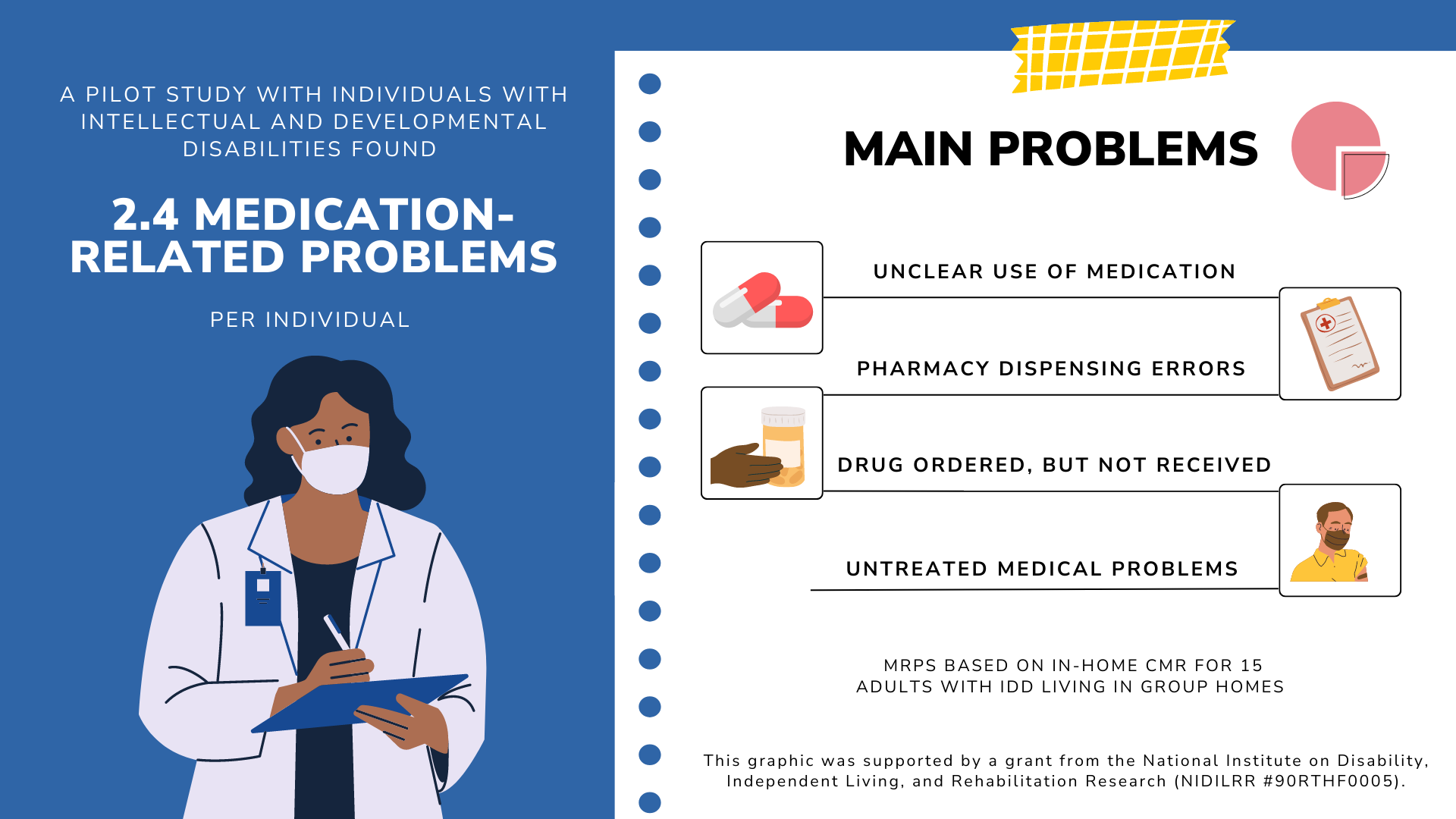“I DREAM IT”: Intellectual Disability-Based Resource to Enhance Virtual Access and Medication Safety Intervention Trial” (R4)
The COVID-19 pandemic and expansion of services at the intersection of information science, computer science, and health care are changing how health care is being delivered. For instance, it is now much more common for physicians to hold telemedicine appointments and for patients to communicate with clinicians through internet portals. These changes are placing marginalized populations, including those with intellectual and developmental disabilities (IDD), at risk for growing access inequalities due to a lack of tailored interventions and support. Data from the University of Michigan showed that only 37.1% of patients with IDD in the Department of Family Medicine have used a virtual visit in the past two years. This is despite agreement among patients with IDD and their caregivers that virtual visits would be an appropriate option to receive care.
Additionally, patients with IDD face elevated risk of adverse medication and health outcomes due to the simultaneous use of multiple drugs to treat a single ailment or condition (polypharmacy), medication interactions, and issues with adherence to guidelines provided by the clinical staff. A study by the R4 Co-Director and Co-Investigator Steven Erickson, PharmD, showed that patients with IDD were more likely than the general population to experience hospitalizations for an adverse medication event. Comprehensive Medication Reviews (CMRs) improved prescribing and medication use practices in various patient populations, yet none exist for those with IDD. CMRs take place when a pharmacist conducts in-depth interviews and assessments of a patient’s medication regimen to identify potential medication-related problems and to follow up on recommendations with prescribers.

Health care access for patients with IDD remains both ineffective and insufficient for their needs. The use of navigators, or clinical staff specially trained to guide a patient through a certain aspect of the healthcare system, could potentially improve access and adoption of virtual visit platforms. People with disabilities prefer peer navigators, or role models from the same community as the patient, because they may have lived through similar experiences, including experiencing negative attitudes and barriers to care. This study provides a new opportunity to assess the effectiveness of an integrated navigator and CMR program to improve virtual care access and medication safety.
The two main goals of this project are:
- To evaluate how effective a trained navigator program would be in terms of improving virtual care access, including video visit and portal use, among a group of patients with IDD (R4a).
- To evaluate the effectiveness of a virtual CMR program for patients with IDD. A pharmacist who will work to find and quickly address medication-related problems will be leading the program (R4b).
